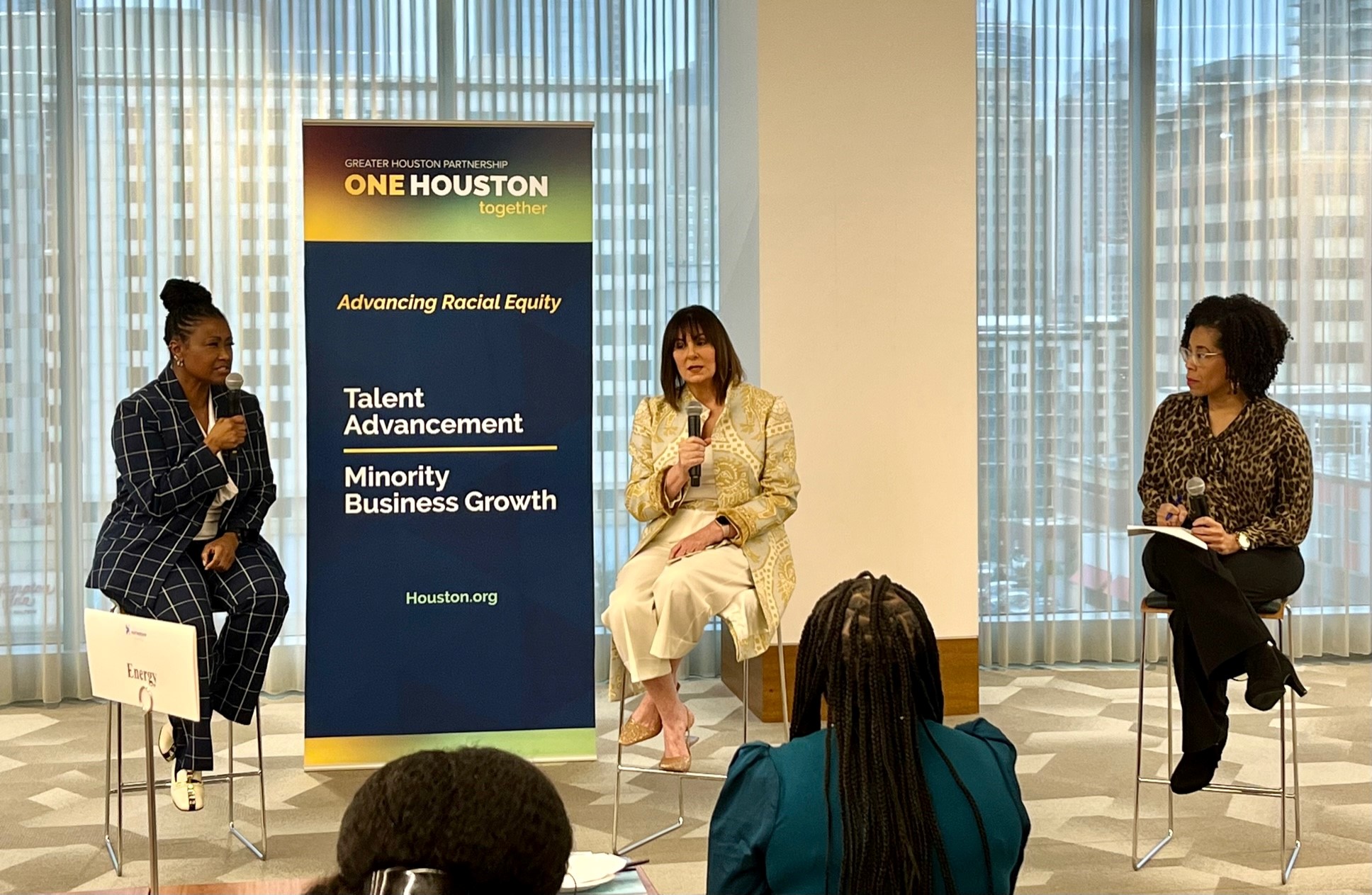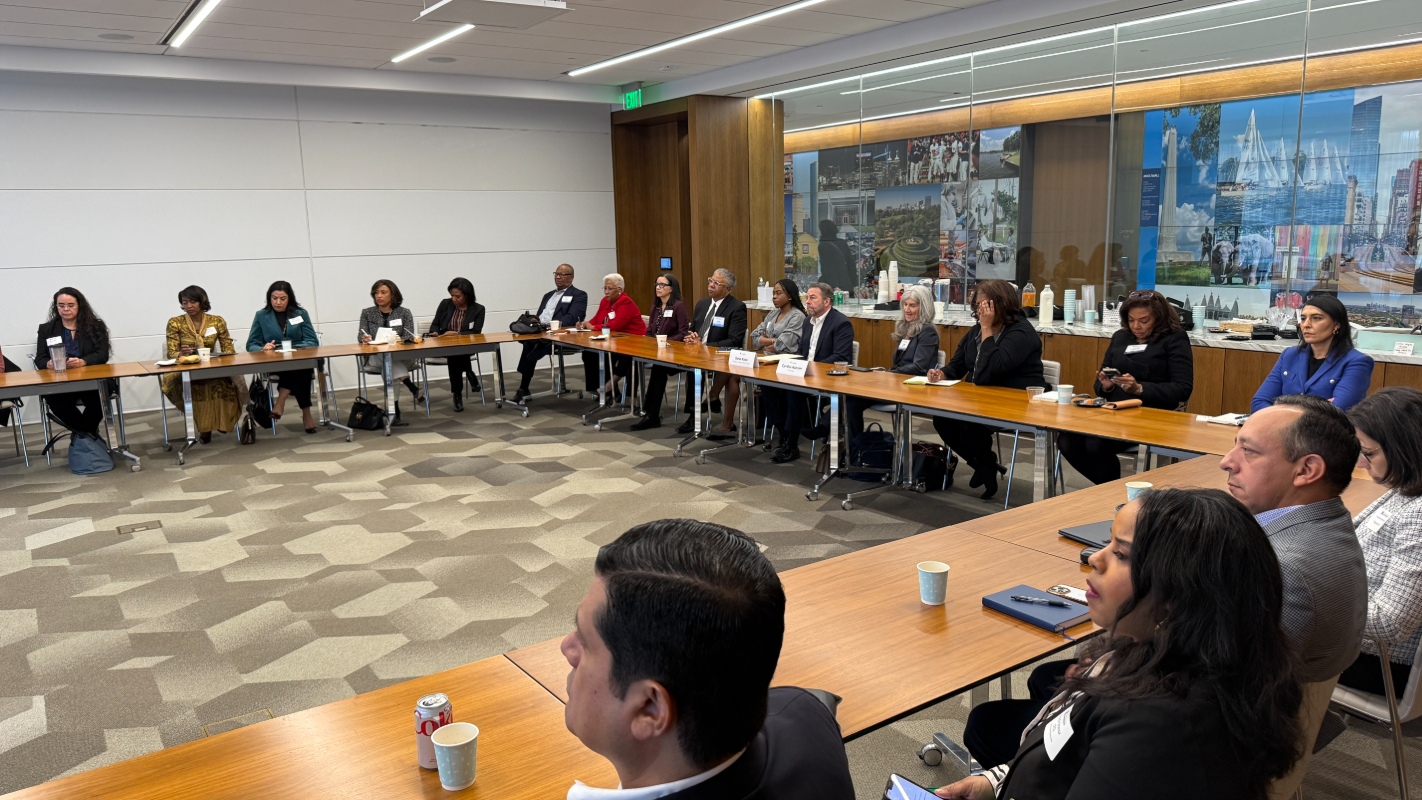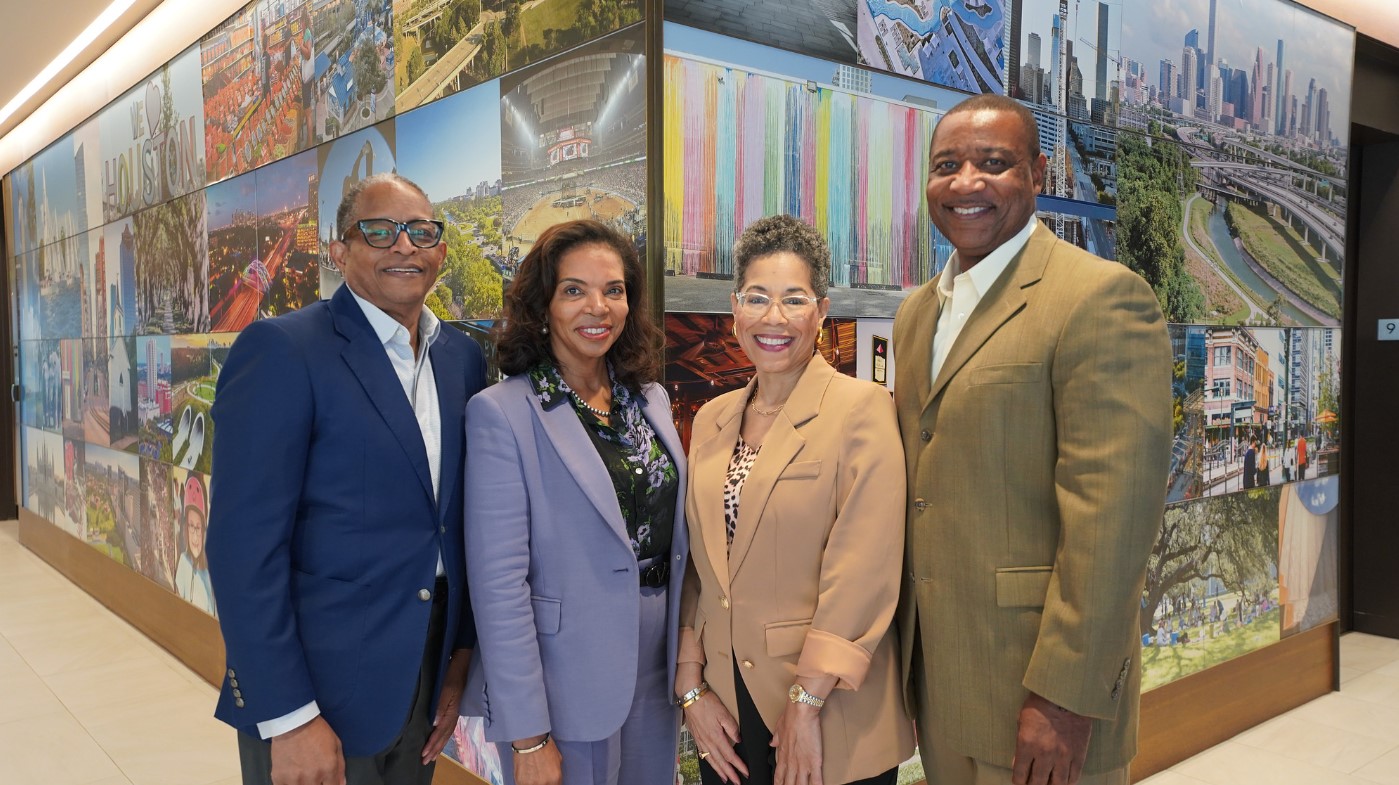One Houston Together Member Spotlight: Chevron’s Employee Sponsorship Journey
Published Feb 28, 2023 by A.J. Mistretta
As part of an ongoing effort to showcase success in the retention and advancement of racially diverse talent, the Partnership’s One Houston Together initiative hosted its first roundtable of 2023 featuring a conversation with senior HR leaders from Chevron who discussed the company’s journey to develop a formal employee sponsorship program.
Increasing racial equity in the corporate talent pipeline and board leadership is one of the two priorities of One Houston Together alongside increasing spending with Minority Business Enterprises. The roundtable discussions are designed to share best practices and showcase Partnership members that are leading change.
Joyce Beaugh, Senior Manager of Strategy, Planning and Analytics and Michelle A. Snoddy, Senior HR Manager in Petrotechs, shared details on the development and evolution of Chevron’s sponsorship program now in its third year at the energy company.
While traditional mentorship often involves a senior professional providing advice and guidance to a junior professional, sponsorship requires more active advocacy by the senior for the junior professional’s career advancement, supporting their aspiration for growth opportunities and a leadership role within an organization.
“In its simplest form, it’s the difference between advice and action,” Snoddy shared with the roundtable participants. “It’s a senior person actually sticking their neck out for another and utilizing their brand to influence that person’s brand.”
Chevron’s journey in sponsorship began several years ago when benchmarking data suggested junior employees might benefit from a formalized sponsorship program that paired them with Chevron’s senior leaders. The company reviewed research and reached out to other businesses and organizations to get examples of successful sponsorship initiatives and decided to pilot their effort with three divisions to gauge effectiveness. They began with a cohort in Finance in 2021 and expanded the program to the Downstream and IT divisions in 2022.
Chevron uses a data-driven approach to identify junior or sponsored employees with strong and sustained performance who may be experiencing headwinds in their advancement. Sponsored employees must be nominated to participate. Each sponsorship cohort runs for a full year and matches between seniors and juniors are done in part through a proprietary software program, with input from business unit leaders to ensure strong matches. Each cohort begins with formal onboarding for both sponsors and sponsored employees to define expectations and foster productive connections.
The size of cohorts and focus vary depending on the business unit, but in one example of positive results: of the 60 matches over two years in Finance, the promotion rate among participants is 44% higher than non-sponsored employees.
Beaugh said it’s important that the senior leaders involved in the program be in a position of power to influence the junior person’s career trajectory and growth opportunities. The company’s extensive data informs where there are breakdowns in advancement within business units and where sponsorship might be most effective. Long term success metrics for the sponsorship program include increased depth and diversity of talent pipeline and measuring participant career progression and employee satisfaction.
“No one is successful without help,” Snoddy said. “Informal sponsorship has been happening for generations, but it hasn’t happened for everyone. We’re taking that informal relationship and formalizing it so that others who might be experiencing headwinds on their journey get the same opportunities.”
In addition to the conversation with Chevron, the roundtable also featured a presentation by Sadie Funk, National Director of Best Place for Working Parents®. The Partnership is the Houston region sponsor for the campaign that enables companies to assess the family-friendliness of their policies and receive a special designation based on their results.
The brief 3-minute survey allows companies to self-assess across 10 research-backed policies that benefit both working parents and the company’s bottom line. Houston companies on the whole ranked high in more than half of the categories in the organization’s 2022 National Trends Report. Best Places is currently active in 14 cities across nine states.
Funk highlighted why Best Place for Working Parents® policies are important in today’s post-COVID working environment and they will be in the future:
- 60% of non-working parents say childcare is the top reason they do not participate in the workforce.
- Only 27% of families have the father as the sole breadwinner.
- 73% of highly credentialed women who leave the workforce say they would have stayed had they had access to flexibility at work.
- 83% of millennials say they will leave one job for another with stronger family policies and supports.
- Replacing an employee costs a business six to nine months of that employee’s salary on average.
Learn more about One Houston Together and read about other case studies.
Want to join the Talent Roundtable? C-suite and senior HR/Talent/DEI leaders from Partnership member companies, please email DEIAssessment@houston.org.
 The Houston Report
The Houston Report




















